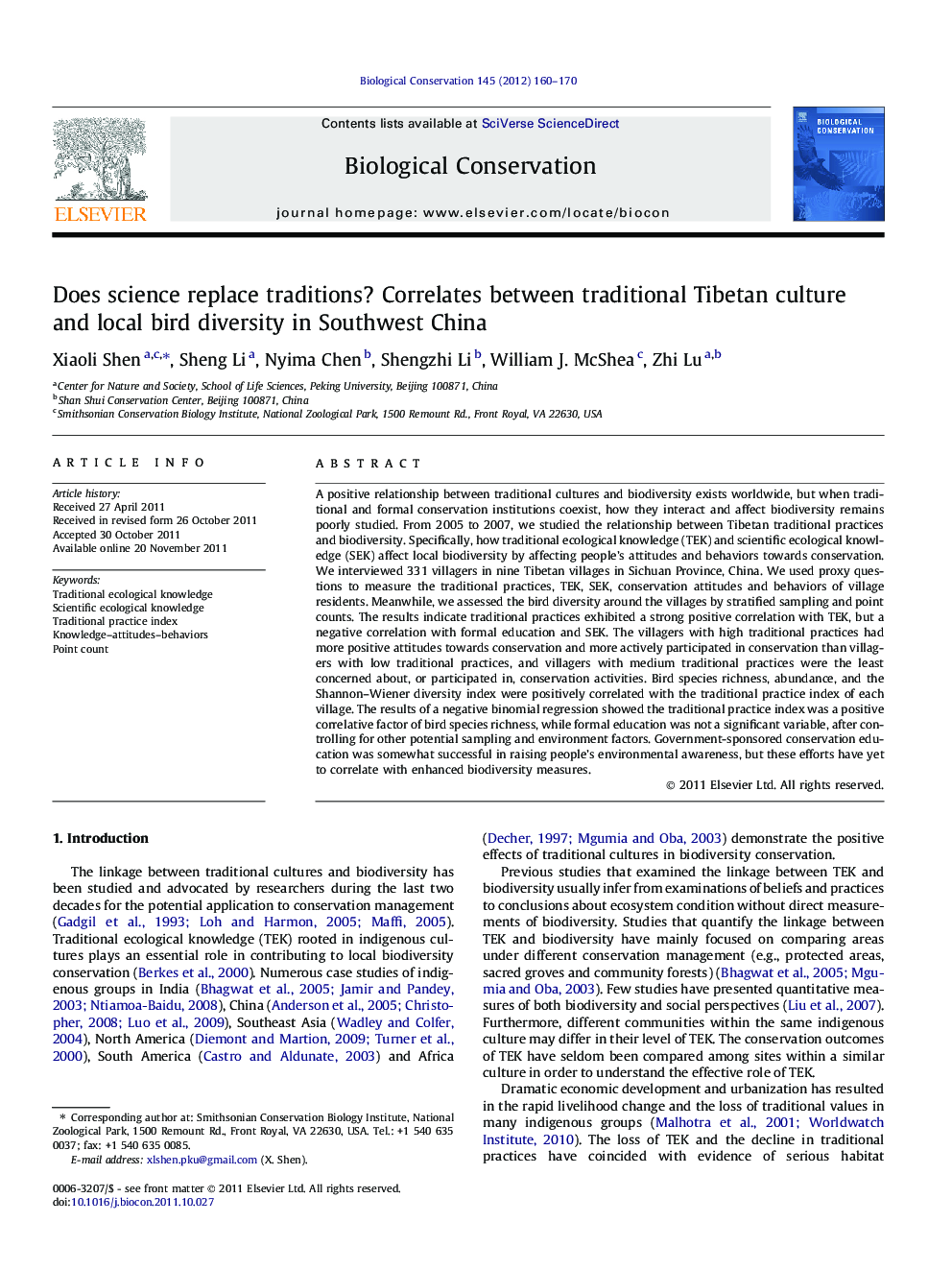| کد مقاله | کد نشریه | سال انتشار | مقاله انگلیسی | نسخه تمام متن |
|---|---|---|---|---|
| 4385362 | 1304533 | 2012 | 11 صفحه PDF | دانلود رایگان |

A positive relationship between traditional cultures and biodiversity exists worldwide, but when traditional and formal conservation institutions coexist, how they interact and affect biodiversity remains poorly studied. From 2005 to 2007, we studied the relationship between Tibetan traditional practices and biodiversity. Specifically, how traditional ecological knowledge (TEK) and scientific ecological knowledge (SEK) affect local biodiversity by affecting people’s attitudes and behaviors towards conservation. We interviewed 331 villagers in nine Tibetan villages in Sichuan Province, China. We used proxy questions to measure the traditional practices, TEK, SEK, conservation attitudes and behaviors of village residents. Meanwhile, we assessed the bird diversity around the villages by stratified sampling and point counts. The results indicate traditional practices exhibited a strong positive correlation with TEK, but a negative correlation with formal education and SEK. The villagers with high traditional practices had more positive attitudes towards conservation and more actively participated in conservation than villagers with low traditional practices, and villagers with medium traditional practices were the least concerned about, or participated in, conservation activities. Bird species richness, abundance, and the Shannon–Wiener diversity index were positively correlated with the traditional practice index of each village. The results of a negative binomial regression showed the traditional practice index was a positive correlative factor of bird species richness, while formal education was not a significant variable, after controlling for other potential sampling and environment factors. Government-sponsored conservation education was somewhat successful in raising people’s environmental awareness, but these efforts have yet to correlate with enhanced biodiversity measures.
► We quantified the relationship between Tibetan traditional practices and bird diversity.
► We measured how traditional (TEK) and scientific ecological knowledge (SEK) affect bird diversity.
► TEK was more profound in promoting people’s conservation attitudes than SEK.
► Traditional practice was positively correlated with bird diversity, while formal education was not.
► We emphasized the importance of Tibetan TEK and a complimentary role for both TEK and SEK in conservation.
Journal: Biological Conservation - Volume 145, Issue 1, January 2012, Pages 160–170